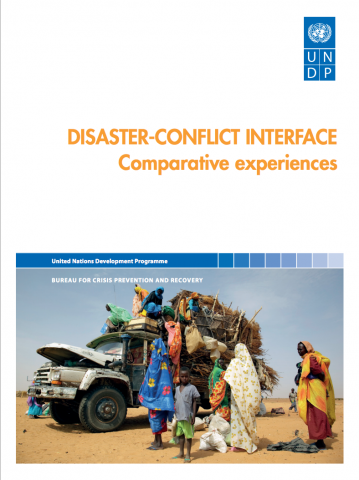Disaster Conflict Interface


The study aims to achieve a comparative analysis of tendencies and experiences that stem from the relationship between disasters and conflict. It also analyses the relative success of existing relevant programming approaches adopted incountry. This comparative analysis aims to: contribute to the body of knowledge on the interactions between disaster and conflict; better understand the importance of these interactions for development programming in crisis contexts; and create improved programming that responds to the relationships between disasters and conflict. The intention is to help identify practical approaches and disseminate good practice – thereby helping to better equip UNDP Country Office staff who operate in complex environments in which disaster and conflict overlap.
The study is based on experiences from nine selected case-study countries to try and capture the broad spectrum of possible relationships between disasters and conflicts. The country case studies included: Bolivia, Haiti, Indonesia (Aceh), Kenya, Kyrgyzstan, Papua New Guinea (PNG), Sri Lanka, Sudan and Zimbabwe. Each case study analyses the dynamics of the interface, as well as strategies and interventions across agencies, and particularly focuses on UNDP approaches and good practices.
Bureau for Crisis Prevention and Recovery, United Nations Development Programme, 2011
Disaster Conflict Interface
http://wcdrrbag.info/Undocuments/ByStakeholder/Disaster-Conflict_Interface_Comparative_Experiences.pdf
